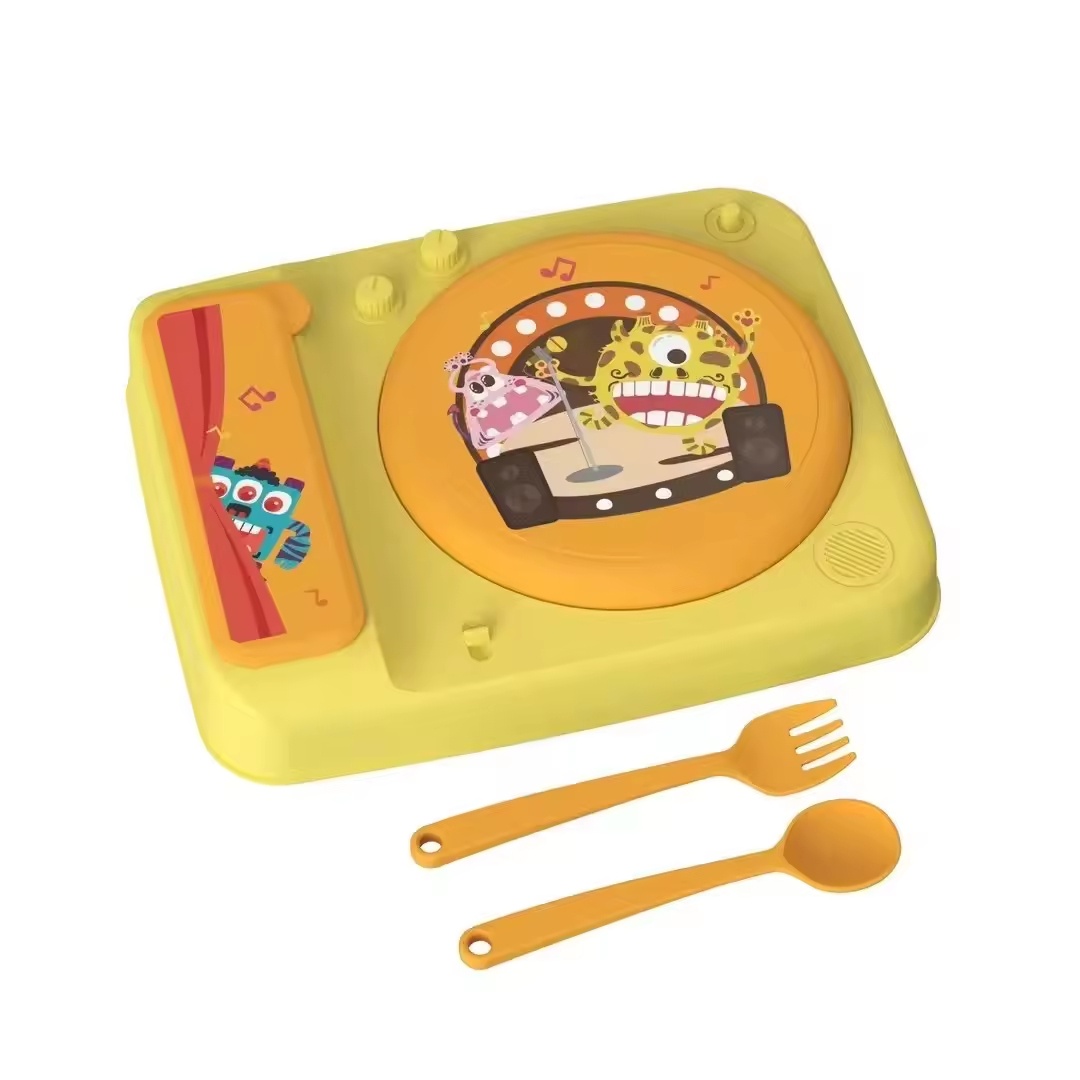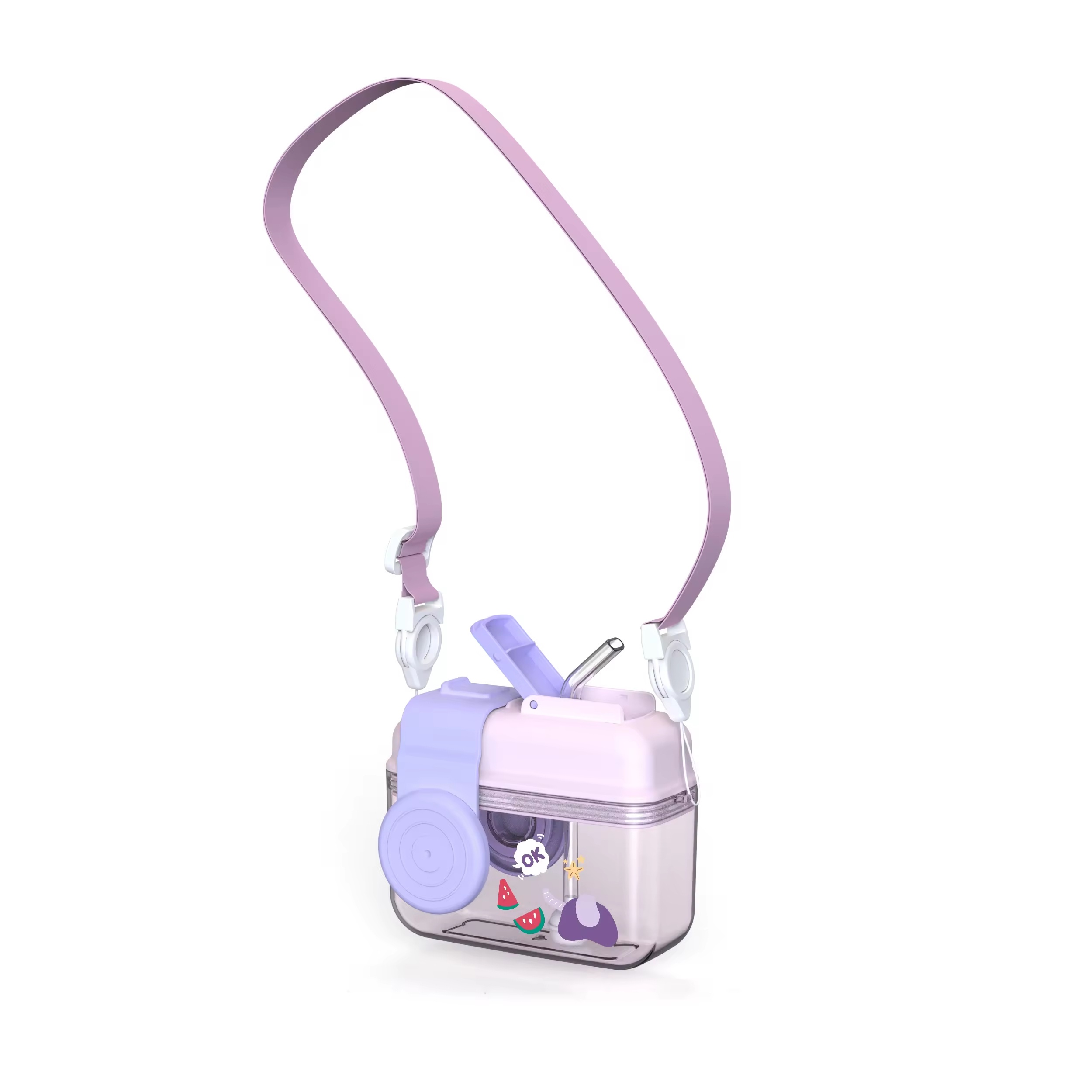Why Quality Control Matters in Children's Tableware?
In the world of children's tableware, quality control is a critical factor that cannot be overlooked. As a supplier who specializes in custom products for young kids, I have seen firsthand the importance of ensuring the quality of every product we deliver. If you're a purchasing manager or involved in sourcing children's products, you’ll know how vital it is to ensure that what you get is safe, durable, and reliable.
Quality control is the backbone of any successful children's tableware business. Without it, the risk of delivering substandard products increases, affecting your brand reputation. Whether you’re purchasing for a large retailer or a brand, a strong focus on quality control helps maintain safety standards and ensures that every product meets the required specifications.
It’s easy to get distracted by price and lead time when making purchasing decisions, but focusing solely on these factors can lead to costly mistakes in the long run. Let’s take a deeper look into why quality control plays such a pivotal role in this industry.
What Are the Key Aspects of Quality Control in Children's Tableware?
In children's tableware, there are several key aspects that quality control focuses on, including material safety, manufacturing precision, and overall durability. For every batch produced, it's crucial to ensure that the materials used in the tableware, whether plastic, Tritan, or stainless steel, meet international safety standards. These materials must be non-toxic and safe for children, which is why we always ensure our products comply with ISO, FDA, and BSCI audits.
Material Safety and Compliance
When sourcing children's tableware, one of the first things you need to check is the material safety. The plastics and metals used in manufacturing tableware must meet strict regulations to ensure that they do not contain harmful substances like BPA, lead, or phthalates. These materials must also be durable enough to withstand rough handling by children, who may be less careful than adults with their eating utensils.
For example, Tritan, a popular material for children's products, is known for being free of BPA, making it a safer choice for cups, bowls, and other tableware items. Additionally, using food-grade stainless steel is another great choice because it doesn't retain odors and is less likely to break or bend during normal use.
Manufacturing Precision
Manufacturing precision is another critical area that can impact the quality of the final product. Children's tableware is often subjected to wear and tear, especially when children are involved in the daily use of these products. Having precise molds and manufacturing methods ensures that each item is produced consistently. Even the smallest variations in dimensions can lead to products that don't fit together well, which could cause safety issues, like choking hazards, or inconvenience to consumers.
We use over 100 sets of molds in our production process, enabling us to create consistent products. Whether it's a bowl, cup, or cutlery, maintaining tight tolerances is a key element in delivering high-quality products.
Durability and Functionality
Durability is especially important for children's tableware, which often faces the challenges of being dropped, tossed, or thrown. Ensuring that your tableware is made from materials that are both lightweight and strong is a crucial step in making sure your product lasts.
For instance, products made with Tritan are durable but also relatively lightweight, making them ideal for young children who are still learning how to use utensils. We test these products under real-life conditions, making sure they can withstand drops or spills without breaking or cracking.
Why Is Quality Control So Important for Customer Satisfaction?
Customer satisfaction in the children’s tableware market is directly linked to the quality of the products you offer. For customers, quality isn’t just about the product working as expected; it’s about trust. Trust that the product is safe, reliable, and durable. When a customer buys your tableware, they expect it to last and be safe for their children.
Maintaining High Standards in Quality Control
By adhering to rigorous quality control standards, you can ensure that your products consistently meet the expectations of your customers. This not only improves customer satisfaction but also builds brand loyalty. For purchasing managers and product managers, this means reduced complaints and returns, which translates to fewer headaches and greater efficiency.
One way to ensure quality is maintained is by conducting regular audits and testing. Our factory undergoes periodic ISO, FDA, and BSCI audits, ensuring that we comply with the highest safety and quality standards. Regular testing of each product batch ensures that it meets the required safety and durability criteria before it reaches your customer.
The Role of Communication in Quality Control
Another key aspect that contributes to customer satisfaction is clear communication. Purchasing managers like Jeff Weaver, who value professionalism and efficient communication, expect quick and clear responses regarding quality control issues. Having a streamlined communication channel with suppliers is vital for quickly addressing any concerns that arise during the production process.
Our service team works closely with our clients, providing comprehensive support across all stages of production, from order management to logistics. This open line of communication helps us address any potential quality concerns before they become larger issues.
Benefits of Comprehensive Quality Control
There are several benefits to having a solid quality control process in place. By ensuring that your tableware meets high-quality standards, you can:
- Reduce the risk of recalls, which can harm your brand reputation.
- Improve customer loyalty and satisfaction by consistently delivering safe and durable products.
- Increase operational efficiency by minimizing defects and returns.
- Ensure that your products meet the regulatory requirements of the regions you export to.
How Does Effective Quality Control Impact Your Bottom Line?
While implementing effective quality control may seem like an upfront investment, it can significantly impact your bottom line by preventing costly issues down the road. In the long run, maintaining high-quality standards will save your business money and protect your reputation.
Cost of Poor Quality
When quality control fails, it can lead to significant losses. If a batch of products doesn’t meet the standards, you may face costly recalls or legal fees if the products fail to comply with safety regulations. Additionally, poor quality products often result in higher customer returns, which can be expensive and time-consuming to manage.
At the same time, damaged goods or products that don’t meet design specifications can lead to customer dissatisfaction, which can damage your brand’s reputation. In the worst cases, this could even result in a loss of major contracts or partnerships.
Investment in Quality Control
By investing in quality control upfront, you can avoid these problems and ensure the long-term success of your business. It's an investment that pays off in the form of satisfied customers, fewer returns, and reduced legal risks. Companies with a strong track record of quality control tend to build lasting relationships with their clients, which ultimately contributes to steady business growth.
Regular testing, audits, and process improvements allow you to continuously meet or exceed customer expectations. We’re always looking for ways to improve our quality control processes to ensure our products consistently meet the highest standards.
Quality Control and Reputation
In today’s market, customer feedback is more accessible than ever. With social media, reviews, and word-of-mouth, poor product quality can quickly spread, tarnishing your brand's reputation. Having a robust quality control system in place can help ensure that your products meet customer expectations and help build a positive reputation for your brand.
Conclusion
Effective quality control ensures that your children's tableware products are safe, reliable, and durable, leading to greater customer satisfaction and business success.
 Managing Your Baby Feeding Tableware Supply Chain from China: How to Ensure Smooth Operations?
Managing Your Baby Feeding Tableware Supply Chain from China: How to Ensure Smooth Operations?
 Negotiating Costs for Baby Plates & Cutlery with Chinese Suppliers: How Can You Get the Best Deal?
Negotiating Costs for Baby Plates & Cutlery with Chinese Suppliers: How Can You Get the Best Deal?
 Importing FDA-Grade PP & Tritan Kids Cups from China?
Importing FDA-Grade PP & Tritan Kids Cups from China?
 What Design Features Make an IP-Themed Bowl Safe for Infants?
What Design Features Make an IP-Themed Bowl Safe for Infants?
